Neurodiversity Awareness and How to Support a Family Member with Neurodiversity or Autism
Neurodiversity awareness is crucial when it comes to supporting a family member with neurodiversity or autism because it helps foster a deeper understanding and empathy for their unique needs, strengths, and challenges.

Neurodiversity Awareness and How to Support a Family Member with Neurodiversity or Autism: Course Overview
Neurodiversity awareness is crucial when it comes to supporting a family member with neurodiversity or autism because it helps foster a deeper understanding and empathy for their unique needs, strengths, and challenges. By learning about neurodiversity, family members can better appreciate the different ways their loved one experiences the world, communicates, and processes information. This knowledge allows for more tailored support, whether it’s adapting communication styles, creating inclusive environments, or identifying strategies to help manage sensory sensitivities or social interactions. Additionally, embracing neurodiversity promotes acceptance and reduces stigma, empowering family members to advocate for their loved ones in a way that respects their individuality and enhances their quality of life.
This course will explore:
- What is Autism and Neurodiversity
- How to recognise Autism and Neurodiversity
- What are the challenges for individuals with Autism and Neurodiversity
- How to support a family member or close friend who may have an Autism or Neurodiverse diagnosis.
Common Challenges When Supporting a Family Member with Neurodiversity or Autism:
- Communication Difficulties
- Sensory Sensitivities
- Social Interaction Challenge
- Behavioural Differences and Difficulties
- Navigating the Education System
- Moving towards an Independent Life
- Emotional Regulation
- Lack of Resources or Support
- Social Stigma and Misunderstanding
- Caregiver Stress and Fatigue
- Unpredictability
What You Will Learn:
● Increased Understanding: Family members will gain a deeper understanding of autism and neurodiversity, including how it affects communication, behaviour, and sensory processing. This understanding helps reduce frustration and confusion in everyday interactions.
● Improved Communication: The course would teach strategies to communicate more effectively with a neurodiverse individual.
● Practical Tools and Strategies: Participants would learn practical techniques for managing sensory overload, meltdowns, and challenging behaviors. This might include behaviour management strategies, coping mechanisms, or creating structured routines.
● Empathy and Support Skills: A course would foster greater empathy and patience, helping family members feel more equipped to handle stressful situations and to respond with compassion. This could reduce caregiver burnout and emotional strain.
● Enhanced Social Skills for the Individual: With better understanding and support, family members can help the neurodiverse individual develop social skills, navigate social situations, and build relationships in a way that is suited to their abilities and needs.
● Improved Advocacy Skills: Families would learn how to advocate more effectively for the individual’s needs in settings like schools, workplaces, or healthcare environments, ensuring they receive the proper accommodations and support.
● Strengthened Family Dynamics: As families grow in understanding and support for each other, relationships can become more harmonious, and family members might feel more united in their shared approach to caregiving.
● Reduced Stigma and Isolation: The course would provide tools for addressing societal stigma, encouraging families to be more confident and proactive in promoting awareness and acceptance of neurodiversity, both within their social circles and the wider community.
● Better Emotional Regulation: Family members would learn how to model and teach emotional regulation strategies, which can help reduce stress for both the individual and the family unit as a whole.
● Increased Confidence: With the knowledge gained from the course, family members would likely feel more confident in their ability to support their neurodiverse loved one, navigate challenges, and celebrate successes.
In essence, a course like this would empower families with the knowledge, skills, and support systems to enhance the quality of life for both themselves and their neurodiverse family member.
Who Should Attend:
- Anyone with a family member or close friend with a neurodiverse or autism diagnoses.
- Anyone who is curious to learn more about neurodiversity and/or autism diagnoses.
- Anyone who is concerned about a family member or close friend with a neurodiverse diagnoses or autism and would like help and support.
REFINE YOUR SKILLS
- Course Duration: 1 days (6 hours total)
- Or can be split: : 2 X half day (2 X 3 hours)
- Language: Arabic
- Audience: Group
- Time: TBA
Neurodiversity Awareness and How to Support a Family Member with Neurodiversity or Autism
Next available date: TBA
Neurodiversity Awareness and How to Support a Family Member with Neurodiversity or Autism

Have questions about this course? Leave us a message
Why choose the British School of Excellence Qatar?
- We are the only Etiquette Training provider in the world to be certified and accredited by four internationally recognised organisations: CPD, ILM (part of the City and Guilds Group, and Investors in People). Our training programmes and courses provide an investment for your private life and also for your career.
- We believe that the knowledge and practice of human skills, correct manners, etiquette and service are fundamental skills required to build confidence. Through our programmes, we teach people of all ages how to develop respectful relationships with others, how to be polite, kind and thoughtful, and to develop business and professional skills.
- We welcome people from various backgrounds and nationalities who are enthusiastic about learning. Our philosophy is to teach our attendees how to be the best possible version of themselves so that they can succeed in life, stand out in society and be role models for others.

The British School of Excellence Qatar
Country Partner




